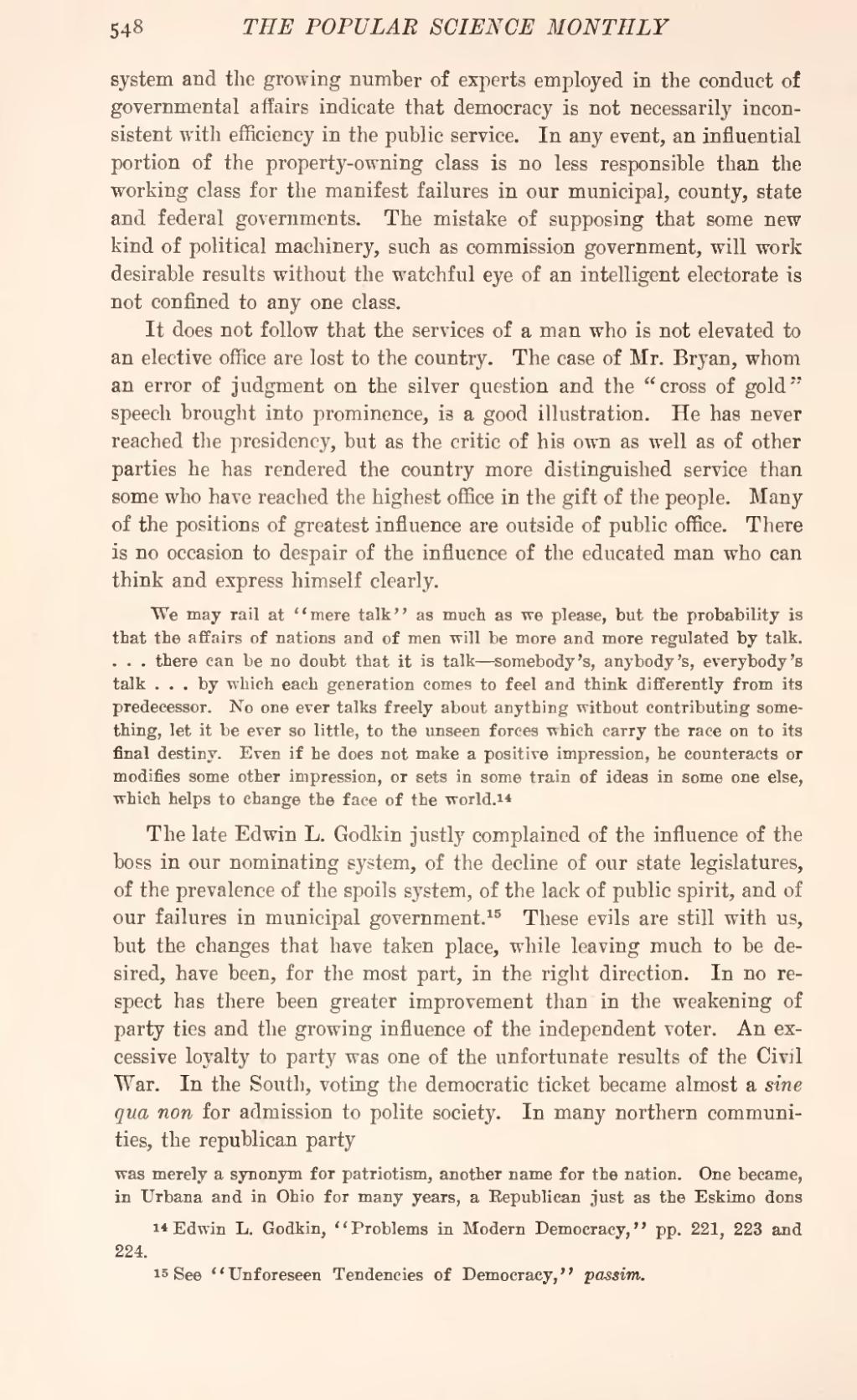system and the growing number of experts employed in the conduct of governmental affairs indicate that democracy is not necessarily inconsistent with efficiency in the public service. In any event, an influential portion of the property-owning class is no less responsible than the working class for the manifest failures in our municipal, county, state and federal governments. The mistake of supposing that some new kind of political machinery, such as commission government, will work desirable results without the watchful eye of an intelligent electorate is not confined to any one class.
It does not follow that the services of a man who is not elevated to an elective office are lost to the country. The case of Mr. Bryan, whom an error of judgment on the silver question and the "cross of gold'"' speech brought into prominence, is a good illustration. He has never reached the presidency, but as the critic of his own as well as of other parties he has rendered the country more distinguished service than some who have reached the highest office in the gift of the people. Many of the positions of greatest influence are outside of public office. There is no occasion to despair of the influence of the educated man who can think and express himself clearly.
We may rail at "mere talk" as much as we please, but the probability is that the affairs of nations and of men will be more and more regulated by talk. . . . there can be no doubt that it is talk—somebody's, anybody's, everybody's talk. . . by which each generation comes to feel and think differently from its predecessor. No one ever talks freely about anything without contributing something, let it be ever so little, to the unseen forces which carry the race on to its final destiny. Even if he does not make a positive impression, he counteracts or modifies some other impression, or sets in some train of ideas in some one else, which helps to change the face of the world.[1]
The late Edwin L. Godkin justly complained of the influence of the boss in our nominating system, of the decline of our state legislatures, of the prevalence of the spoils system, of the lack of public spirit, and of our failures in municipal government.[2] These evils are still with us, but the changes that have taken place, while leaving much to be desired, have been, for the most part, in the right direction. In no respect has there been greater improvement than in the weakening of party ties and the growing influence of the independent voter. An excessive loyalty to party was one of the unfortunate results of the Civil War. In the South, voting the democratic ticket became almost a sine qua non for admission to polite society. In many northern communities, the republican party

